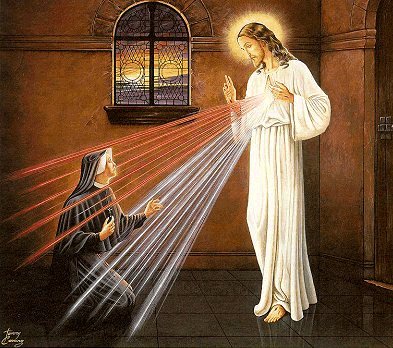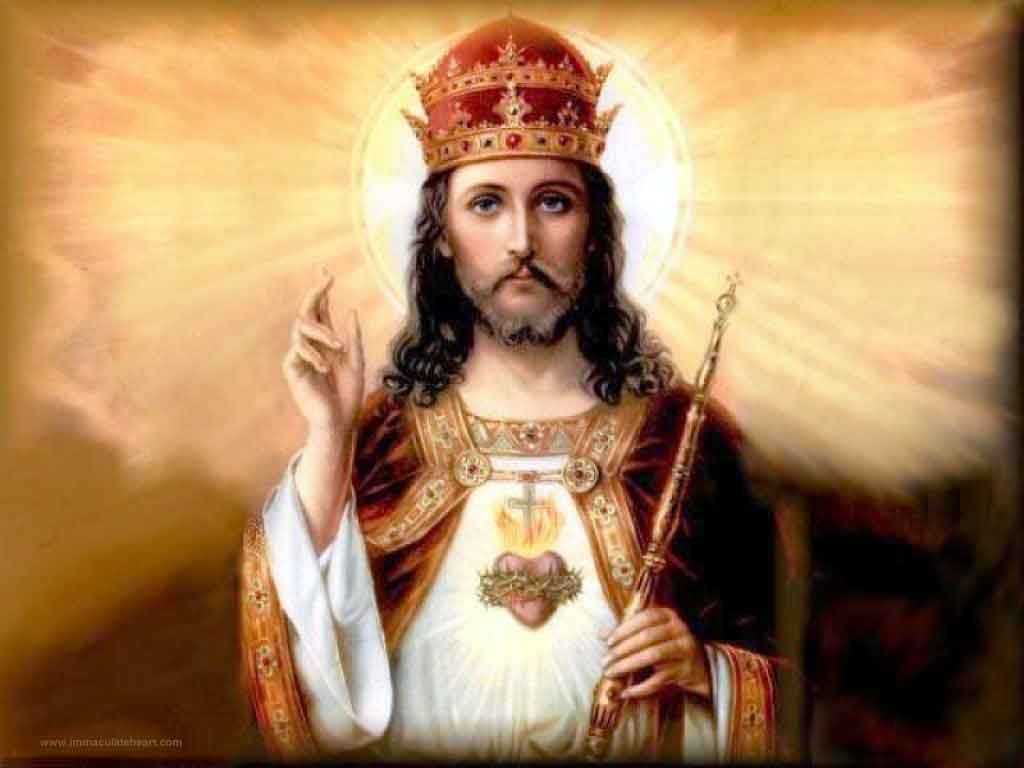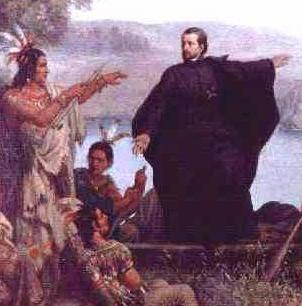John L Allen Jr.
Rome
Though it doesn’t get a lot of press
(In the National Catholic Reporter), one of the more successful movements at the Catholic grassroots over the last several decades has been the phenomenal worldwide spread of devotion to the
Divine Mercy of Jesus, associated with the early 20th century Polish sister and visionary
St. Faustina Kowalska.
Divine Mercy might have remained a largely localized bit of Polish piety, were it not for the fact that the late Pope John Paul II saw it as the key to resolving the problem of evil in the 20th century and worked tirelessly to promote it, beatifying and canonizing Kowalska and even consecrating the entire world to Divine Mercy.
(Is their a problem with this?) From John Paul’s point of view
(It is Jesus' message not JPII's) , the fact that this contemporary revelation of God’s mercy came in the run-up to World War II, to a Pole just a few miles from Auschwitz, carried obvious fingerprints of divine providence. Given the pope’s deep personal bond to Faustina, devotees were moved by the fact that he died in April 2005 on the vigil of the feast of Divine Mercy that he himself had instituted. As a result of John Paul’s personal backing, the Divine Mercy devotion has become one of the most rapidly growing bits of spiritual practice in Catholicism. In Rome, for example, the Church of Santo Spirito in Sassia was dedicated to the Divine Mercy devotion by John Paul, and today it’s routinely packed with devotees from across the world. (As Fr. Mauro Parmeggiani of the Rome diocese has noted, churches near St. Peter’s generally suffer from the competition, but not Santo Spirito.)
(Wow!) If more proof is needed, I offer the fact that on my last trip out to rural Western Kansas to visit my 93-year-old grandmother, I spotted a large billboard along the I-70 with the now-ubiquitous image of Jesus with rays of red and white radiating from his heart, under the slogan
“Jesus, I Trust in You.” (As a footnote, it’s located not far from the locally famous billboard reading “One Kansas farmer feeds 129 people, plus you.”)
In another sign that the devotion has arrived, Rome will host an international congress on the Divine Mercy movement from April 2-6, 2008, just before Pope Benedict XVI’s April 15-20 trip to the United States. The ecclesiastical sponsor of the congress is Cardinal Christoph Schönborn of Vienna, who offered a briefing on the event today in the Press Office of the Holy See. Faustina's message
"is a word for our times, for the real world,” Schönborn insisted.
“It’s not just a particular devotion for a given zone.” Schönborn underlined John Paul’s memorable phrase about the urgency of the Divine Mercy message in his 2005 book Memory and Identity:
“The only limit imposed upon evil,” the pope wrote,
“is ultimately divine mercy.” I somewhat playfully asked Schönborn if Kowalska’s message might have some relevance for American political debate, where, in a culture of attack ads and zingers, mercy seems more often honored in the breach than the observance.
“It would be interesting to conduct an electoral campaign under the profile of divine mercy,” Schönborn joked.
“Maybe you can propose that for the United States.” Finally, as Schönborn had announced that a memorial Mass marking the third anniversary of John Paul’s death would be celebrated during the congress, I asked if any part of him hopes that this occasion might also become the late pope’s beatification Mass.
“It’s not up to us,” he replied.
“We’re hoping for it [the beatification], waiting for it, as I think people are throughout the world. We will continue to pray for it. But whether you’re the Vicar of Christ or not, Heaven has its own timeline.”
* * *By way of background, St. Faustina Kowalska was born in Poland in 1905 and died in 1938. She believed that Jesus appeared to her in 1931
(hedged wording) with a message of mercy for all humanity.
(Factualy incorrect, St Faustina painted the first image) Her spiritual director commissioned an artist to render a painting of Jesus as he appeared in her visions, which has become the well-known image of Jesus with two rays of light streaming from his heart. (The red ray represents the blood that flowed from Christ’s side when struck with a spear on the cross, the white the water). Her 600-page diary of the visions is known as Divine Mercy in My Soul.
(Factualy incorrect, Jesus devised the prayers and spiritual works of mercy) She devised various prayers and spiritual acts to support this devotion before dying in 1938. Faustina has long been an important figure in the life of John Paul II. As an underground seminarian during World War II, he was influenced by Kowalska’s diary. When he became archbishop of Krakow, he began the process of her beatification, which he brought to fruition as pope. Despite its wide global success, the Divine Mercy devotion is not without its critics
(This includes John Allen, no dought) . Some see Faustina’s quasi-apocalyptic insistence on human unworthiness as excessive
(Jesus talks explicitly about roles of the soul in relation to the Church Millitant, the Church Suffering and the Church Triumphant). Others
(please name names!) object to the way the pope
(Jesus requested it) placed the divine mercy feast on the second Sunday after Easter, hence
“disrupting,” (How about perfectly placed by the Holy Spirit?) according to some
(Which liturgist?) liturgists, the Easter season. (Especially given that Easter is supposed to be about the joy of resurrection, not our constant need for mercy
(Wow, arrogence unleashed). Still others say the pope shouldn’t use his office to foist
(Foist is not a chartiable word) his personal spirituality on the rest of the church
(John, you do not have to participate). One interesting footnote
(clever wording) is that for almost 20 years, from 1959 to 1978, Faustina’s diary was officially banned by the Holy Office, today’s Congregation for the Doctrine of the Faith. Working from what is today recognized as a faulty Italian translation of her diary, the Holy Office decided that Faustina’s private revelations were quirky and effectively silenced her movement. It was thus a minor bit of defiance
(John Allen gives no account for the Holy Spirits Divine influence on the life or election of John Paul the Great) for Polish Archbishop Karol Wojtyla to open canonization proceedings on October 21, 1965, for someone whose lifework was still officially censored in Rome.
(More clever wording, a ban is what happened to Frs. Haight and Phan) The Vatican’s ban on Divine Mercy Devotion was finally lifted on April 15, 1978, and in short order Wojtyla became pope. His 1980 encyclical Dives in Misericordia is heavily influenced by Kowalska’s experience.
 Obama, supported the killing of 40 million babies in America and votes and advocates the endless slaughter of more babies.
Obama, supported the killing of 40 million babies in America and votes and advocates the endless slaughter of more babies.






























